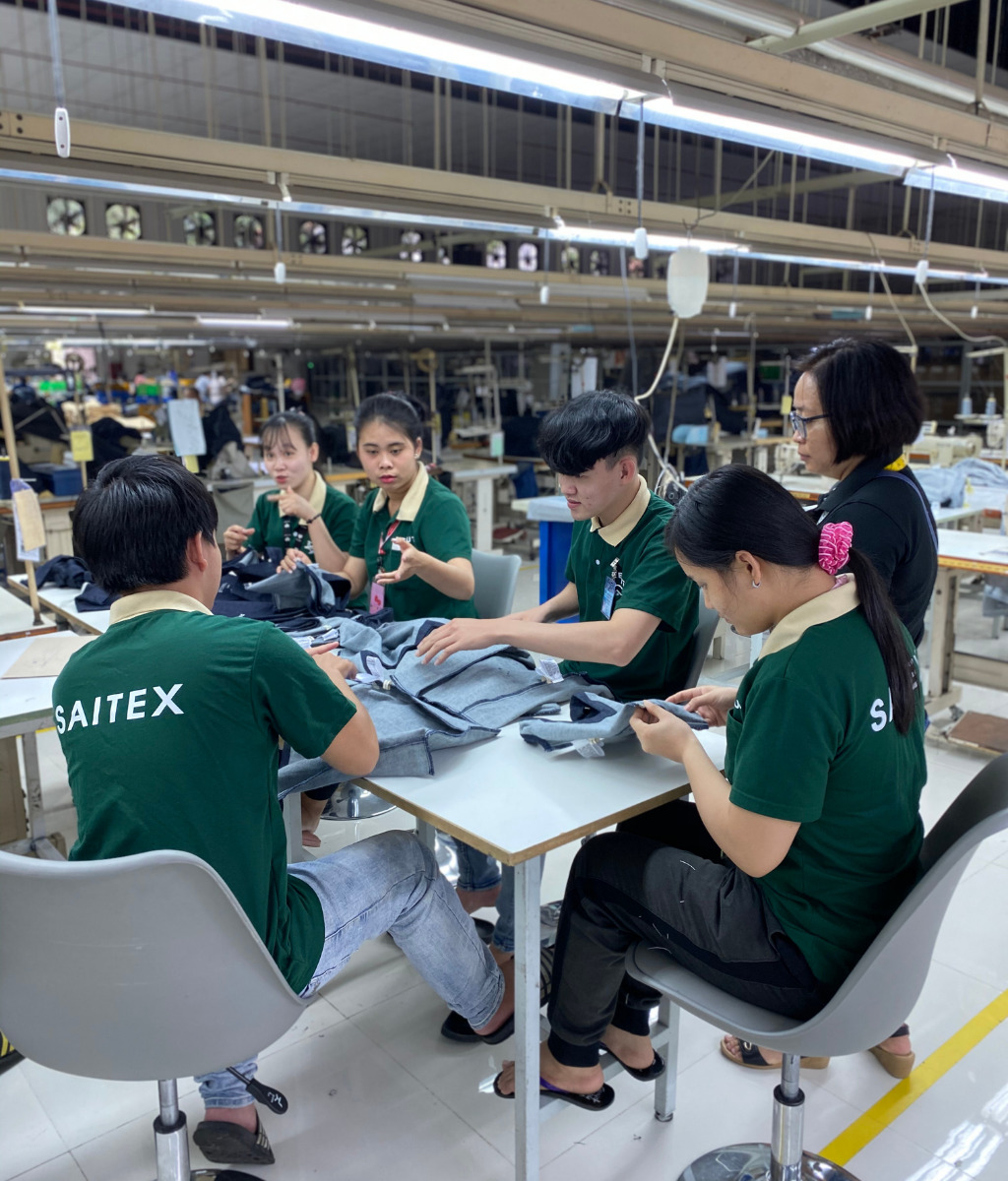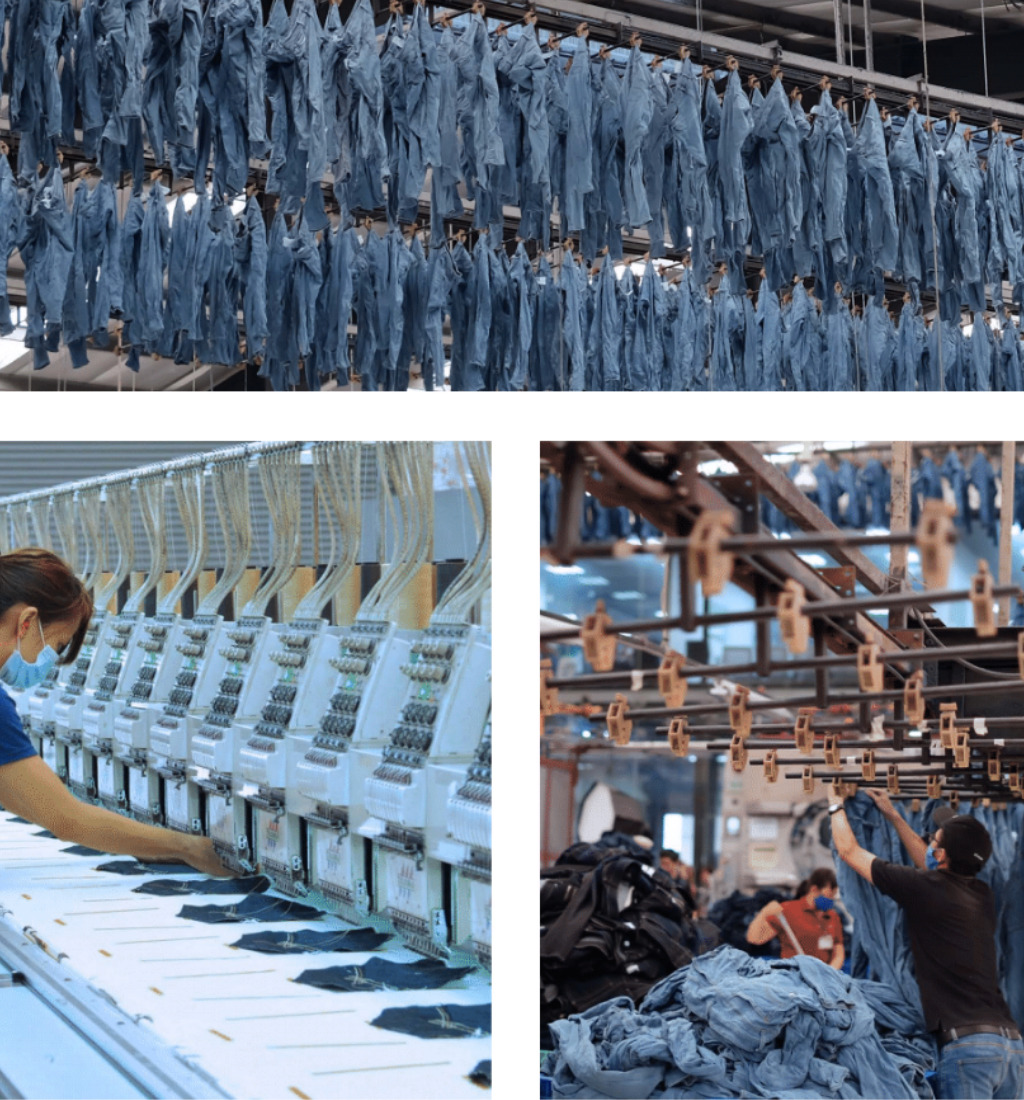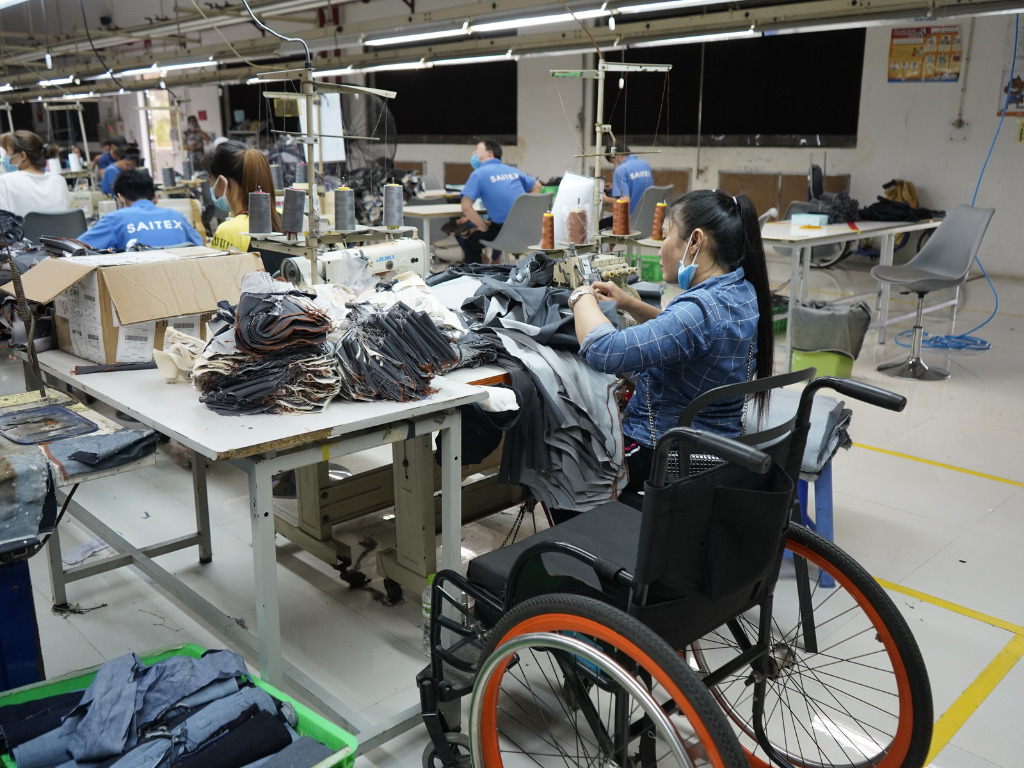5 Mins Read
Based in Ho Chi Minh City, Vietnam, denim factory Saitex runs completely on renewable energy sources with a recycling system on-site and recently launched a new production line in an effort to include differently-abled people and people from disadvantaged backgrounds into the mainstream fashion workforce.
According to the company, Saitex is the world’s first-and-only denim factory that is bluesign approved, a measuring standard for environmental health and safety in textile manufacturing as well as Fair Trade and LEED-certified, producing jeans for brands like Everlane, EDWIN, J Crew, Madewell and many more.
Founded by Sanjeev Bahl, the factory’s facility is run completely by renewable energy and according to its website, Saitex has reduced its energy usage by 5.3 million kilowatts of power per year and slashed its CO2 emissions by close to 80%.
Producing around 18,000 pairs of jeans each day, the factory has a US$2M on-site recycling system due to which each jeans’ water consumption is drastically reduced from 80 liters to one meaning 98% of the water it uses is recycled with the remaining 2% ultimately evaporating making Saitex a zero discharge facility and in doing so roughly saves US$400,000 per year.
It even converts waste – sludge – into useful material by extracting it and taking it to a brick making factory where it can be mixed with concrete and then used to building orphanages and affordable homes in neighboring cities.
In keeping with the Sustainable Development Goals (SDGs), Saitex launched the Rekut initiative, a production line and social entrepreneurship project that aims to provide differently-abled and people from disadvantaged backgrounds, for instance, those who grew up in nearby orphanges, with equal employment opportunities by training them and providing them with a stable income.
The new production line creates upcycled goods with the main focus to transform deadstock garments into face masks, upcycled home goods, apparel, and accessories.
In a press release seen by Green Queen, Sanjeev Bahl, CEO & founder of Saitex said that they are committed to creating a circular economy throughout the supply chain. “To realize true circularity, our organization must be responsible in all aspects, including accountability over the effects it has on people and the planet. Saitex strives to not only reduce our impact but also to bring real benefit to our environment and communities. Transparency is the key to gaining trust, which requires us to lead with integrity and honesty. We must work together in harmony and champion our policies, including those in diversity and inclusion.”

To realize true circularity, our organization must be responsible in all aspects, including accountability over the effects it has on people and the planet. Saitex strives to not only reduce our impact but also to bring real benefit to our environment and communities. Transparency is the key to gaining trust, which requires us to lead with integrity and honesty. We must work together in harmony and champion our policies, including those in diversity and inclusion
Sanjeev Bahl, CEO & founder of Saitex
Originally funded by Saitex, an investment of US$3,000 takes care of a five-month training for the associates. Now, while other aspects of production and manufacturing are managed by Saitex, the Rekut program is supported by revenue from its products.
This initiative also looks for partners that can help increase its offerings and expand its impact across the globe. It’s existing partner list includes the UNDP United Nations Development Programme, Maison Chance, Saigon Children’s Charity CIO, LIN, DRD Center for Disability and Development, CED Center for Research and Education of the Deaf and Hard of Hearing, Enablecode, and Hear Us Now.
Also, to develop Saitex’s workspaces in a way that suits people with a wide range of different abilities, these non-profits helped consult and design the recruitment and training process.
Bahl added: “To achieve a world with no boundaries, we must constantly be reinventing our approach to create and sustain equal opportunities. Reinvention is the tool for sustainability, to maintain profitability, and to continue on our circular path. A path that others could follow to make our world a better place.”
The company also supports 4 orphanages and once the children turn 18, they are offered the opportunity to be trained and ultimately hired by the company.
Additionally, the initiative recently won the Reuters Diversity & Inclusion Leader 2021 Award.

According to Saitex, in urban areas of Vietnam, people with different abilities and special needs are three times as likely to be unemployed. And to tackle the increasing unemployment here, the company has invested in and trained around 90 associates and plans to increase this number to 1,000 by 2025.
Several factories are understanding the need to be sustainable for instance, Zyrcular Foods, the Barcelona-based alternative protein producer and distributor, recently revealed that renewables will completely power its new 1,500 square metre facility. Another new sustainable vegan accessories manufacturer in China seeks to run an ethical factory in an effort to “completely rewrite the rules” of the fashion supply chain.
In the fashion industry, a growing number of brands are switching to sustainable ways of producing jeans such as the recent partnership between H&M and Lee that will see the launch of a sustainable and size-inclusive denim collection that will include recycled cotton jeans made out of 80% post-industrial waste. Also, Levi’s and Ganni again joined forces for their second denim collaboration showcasing a bunch of pieces developed using cottonized hemp fabric.
Levi’s also collaborated with The R Collective, a Hong Kong-based sustainable upcycled fashion brand to create a fully traceable denim collection that uses scannable garment labels to bring digital education to consumers on how to reduce their fashion footprint with practical tips.
Lead image courtesy of Saitex.




